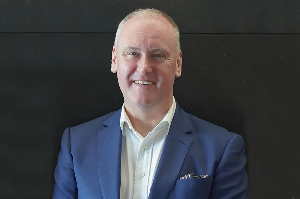Level 5 cert insufficient for some advice areas
Minimum industry entry requirements are not enough to qualify an adviser to give advice in some specialised areas but it looks unlikely the Financial Advice Code will change to raise the bar any higher.
Thursday, April 3rd 2025, 6:37AM  4 Comments
4 Comments
by Kim Savage

Minimum industry entry requirements are not enough to qualify an adviser to give advice in some specialised areas but it looks unlikely the Financial Advice Code will change to raise the bar any higher.
Last year, the Financial Advice Code Committee reviewed the standards of competence, knowledge, and skill in the code, asking for feedback from the sector on changes which will see more emphasis placed on continuing professional development as well as confirm version 3 of the Level 5 Certificate in Financial Services as the minimum standard for entry to the advice world.
Committee member Tony Dench told the Financial Advice New Zealand National Advisor Conference there is no plan to change the core of the code.
“The 9 standards that make up the code work in integrated fashion and that’s important because in many cases, and advisors will understand this, the Level 5 minimum will not be enough to deliver quality advice in particular circumstances, perhaps more complicated, it will not be enough to provide advice that is suitable, more may be required in certain circumstances.”
“That’s the responsibility of the advisor and the responsibility of the FAP to deliver that and that will be recognised by advisors as they go.”
The committee is poised to pass on its recommendations to the Minister of Commerce and Consumer Affairs for a final decision. Included will be an ask for more flexible options for professional development (CPD).
“It is much more than going along to a course and receiving a certificate at the end of it,” says Dench.
“It may be mentoring, it may be an ethics course, it may be time on the job, time reading so providing a more flexible way to achieve what is required for an individual adviser’s CPD.”
Any changes agreed to by the Minister will need to be passed into law, before being reflected in the code.
“Competence is not a destination, it’s not a one stop, one and done,” says Dench.
“It’s very important to continue to improve that and the continuing professional development absolutely implies an increasing capability.”
“That becomes a partnership between the advisor and the advisor’s FAP and of course the national body which can deliver the CPD opportunities.”
| « Disclosure is not a tick box exercise: FMA | IRD determines funds management is exempt GST » |
Special Offers
Comments from our readers
I agree, more meat on the bones needed.
There are areas where significant skill is needed and Level 5 or any other qualification isn't going to solve it.
Time on the job learning the craft under good mentors is the only solution to most of this, a bit like a trade apprenticeship. You don't know or learn it until you’ve done it and seen it.
The life insurers already require at least two years of experience with an experienced adviser before allowing their own FAP agencies, potentially something similar for the other disciplines?
The question that falls out; how do you manage or measure the capability of those mentors when there's no formal qualifications?
I suspect this is going to have a lot of chatter that goes nowhere, because the problem needing to be solved is too hard to describe simply.
If you can't define the problem, how the hell can you figure out what the policy response should be?
I have argued (without much success I might add) that a lot of what MBIE and FMA have done to the financial advice sector has been solutions looking for problems.
I don't think I have seen one proper cost benefit analysis by the officials.
And I don't think adviser representative bodies have held the officials' feet to the fire as they are too ready to cosy up to the officials in the mistaken belief that one day they will be allowed to self regulate.
Self-regulation doesn't work, that's how we got to the position we are, at the same time I've not seen effective lobbying for adviser with providers either.
I am cautious to say the professional bodies haven't had an impact because they have; they haven't had the impact they could have from an external perspective. That's not to say they couldn't have done more, but hindsight is also 20/20.
We do need significantly more engagement across the industry so that those in the middle better understand what's going on at the coal face. This is mainly because those at the coal face don't have the time to spend on this aspect because they are doing what they should be: helping clients.
The introduction of CoFI without the carve-out for those under FSLAA now means those in the middle need to do significantly more work on the piece between advisers and providers to prevent us all from spiralling into a regulatory paperwork black hole!
Sign In to add your comment
| Printable version | Email to a friend |




Please give some examples of this for those of us who aren't in the inner circle when these lofty pronouncements are decided.